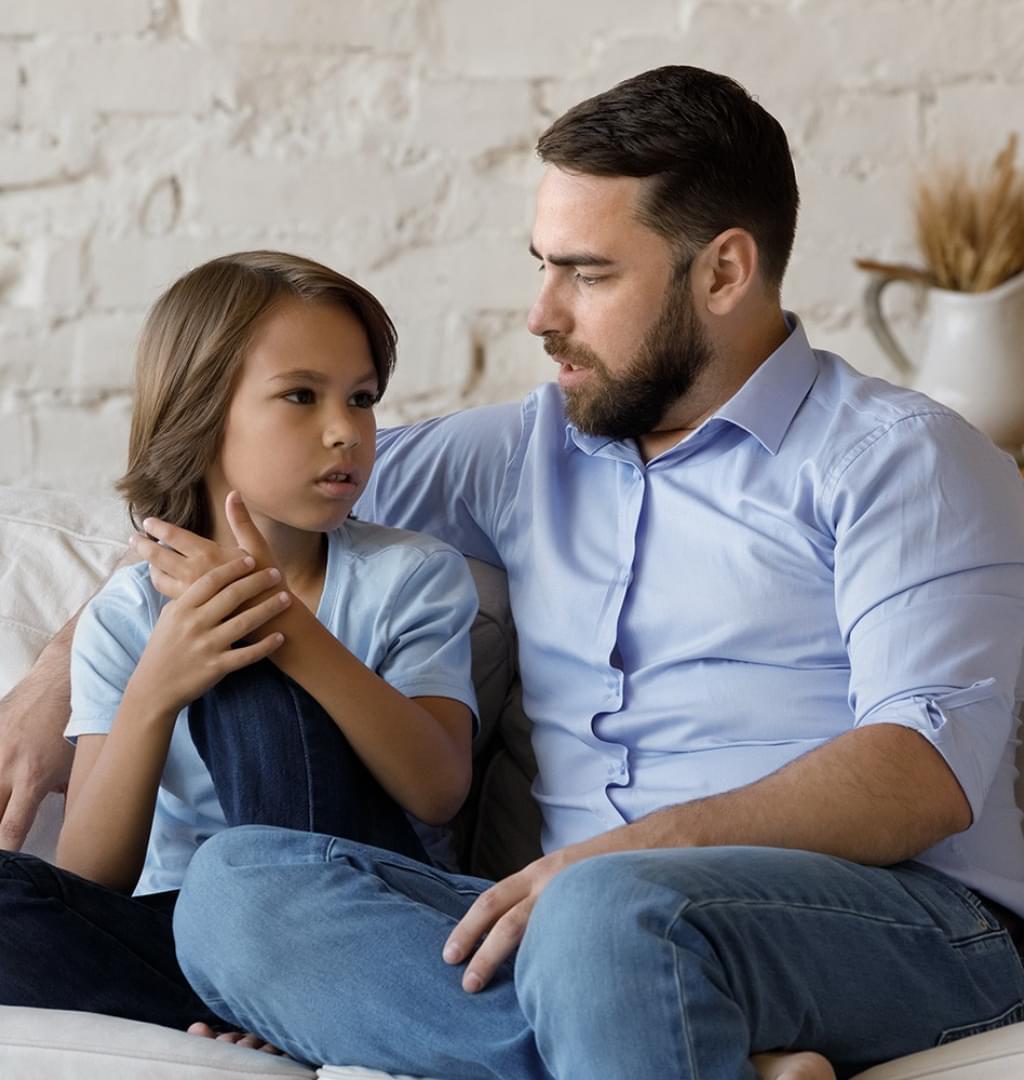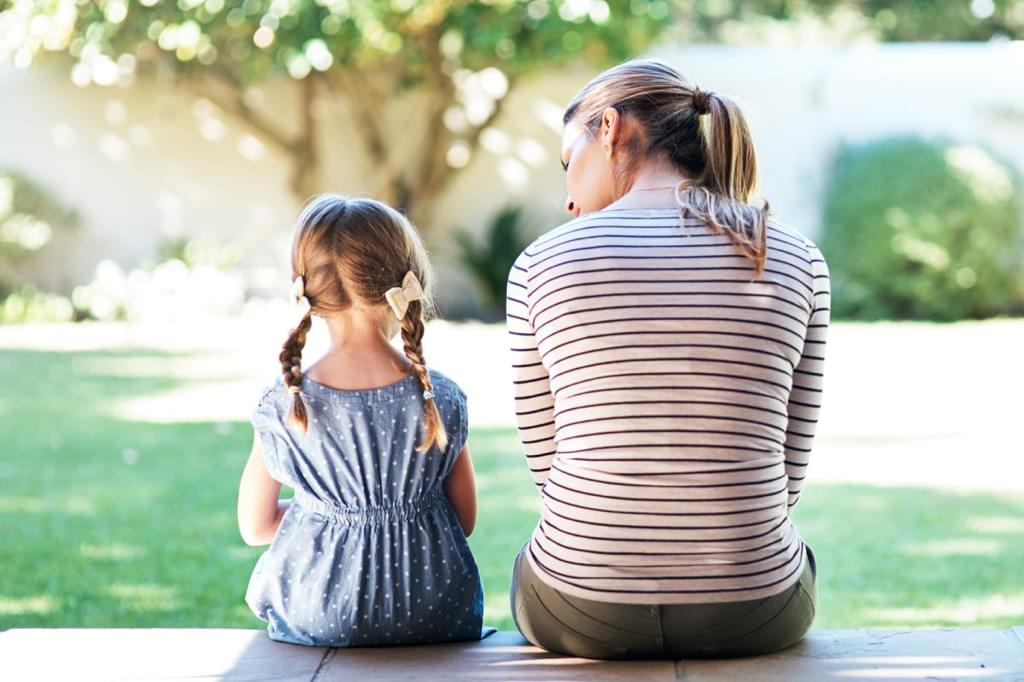Talking To Kids About Cancer
Filed in: Critical Illness
30 July 2025
When Cancer Enters Your Home: The Conversation That Changes Everything
• Honest Communication is Essential - Children are perceptive and notice family changes. Secrecy often causes more harm than age-appropriate truth, as children imagine worse scenarios when left uninformed.
•Developmental Considerations Shape Understanding - Communication must be tailored by age: toddlers need simple explanations, school children need clear expectations, and teenagers require balance between independence and support.
• Practical Preparation Reduces Anxiety - Preparing children for treatment changes--routines, physical changes, hospital visits--helps them feel secure. Creative approaches can transform scary experiences into positive ones.
• Professional Support Systems Are Vital - Families should utilise oncology social workers, counsellors, and organisations like Cancer Council for practical assistance and specialised programs for children affected by cancer.
Navigating the Cancer Journey as a Family: When Words Matter Most
A cancer diagnosis doesn't just affect the person receiving it,it ripples through an entire family, touching children whose worlds suddenly shift beneath their feet. The instinct to protect our children from life's harsh realities is natural, but research consistently shows that honest, age-appropriate communication actually helps children cope better than being kept in the dark.
The Power of Truth Over Secrecy
One of the most profound insights emerging from families who have navigated cancer is that secrecy often creates more harm than the truth itself. Children are remarkably perceptive observers of their environment. They notice whispered conversations, closed doors, increased phone calls, changes in routine, and most importantly, the emotional shifts in their parents. When left to fill in the gaps themselves, children often imagine scenarios far worse than reality.
As one mother of three wisely noted, "Sooner or later they were going to find out. Why not tell them straightaway? I tell them frankly what is happening. I think they find it much easier to cope because they are ready for things."
The fear that children can't handle difficult news underestimates their resilience. With proper support and honest communication, most children demonstrate remarkable strength. However, this resilience depends heavily on having at least one close adult relationship where they feel valued, supported, and accepted for who they are.
Age-Appropriate Understanding
Children's comprehension of illness and their emotional responses vary dramatically based on their developmental stage. Toddlers and preschoolers may worry they caused the illness through their behaviour or thoughts, a phenomenon known as "magical thinking." They need simple, concrete explanations and repeated reassurance that cancer isn't contagious and isn't their fault.
Primary school children can grasp basic information about cancer cells and treatment but may struggle with cause-and-effect logic. They might wonder if their bad behaviour somehow contributed to the disease. These children need clear explanations about what to expect and constant reassurance about their care arrangements.
Teenagers, while cognitively capable of understanding complex medical information, face unique emotional challenges. They may feel torn between wanting independence and needing family support. Some may turn inward, preferring to confide in friends rather than family members. Others might express distress through risk-taking behaviours or academic struggles.
The Treatment Journey: Preparing for Change
Cancer treatment brings a cascade of changes that can feel overwhelming for families. Children need preparation for what lies ahead - not just the medical aspects, but how their daily lives will be affected. Who will take them to school? Who will help with homework when parent energy is limited? How will family routines change?
Physical changes from treatment, particularly hair loss, can be especially traumatic for children to witness. Some families have found creative ways to approach these challenges, like turning head-shaving into a family celebration with friends, transforming a potentially scary experience into something positive and empowering.
Hospital visits need careful consideration. While some children benefit from seeing where their parent receives care, others may find the medical environment overwhelming. The key is following the child's lead while providing adequate preparation about what they might see, hear, and smell in medical settings.
The Emotional Landscape
Cancer brings a rollercoaster of emotions for everyone in the family. Children may experience anger, sadness, guilt, fear, or sometimes no visible reaction at all. Each response is normal and valid. Some children may seem unaffected initially, which can hurt parents who gathered courage for difficult conversations. Often, this apparent lack of reaction is a protective mechanism, giving the child time to process the information at their own pace.
It's crucial for parents to model healthy emotional expression. Crying in front of children, when done appropriately, teaches them that strong emotions are normal and acceptable. However, parents need to maintain enough emotional control to provide reassurance and stability.
The uncertainty that characterises cancer can be particularly challenging for children who thrive on routine and predictability. Learning to live with questions that don't have clear answers becomes part of the family's journey together.
School and Community Support
Schools play a vital role in supporting children through family cancer experiences. Teachers and counsellors who understand the situation can better support academic performance and watch for behavioural changes that might indicate distress. Many children find school a welcome respite where they can maintain normalcy with friends and activities.
However, parents must balance transparency with their child's privacy preferences, particularly with teenagers who may not want to be seen as different from their peers.
Beyond Treatment: Life After Cancer
The end of active treatment doesn't necessarily mean a return to "normal." Families often discover they need to create a "new normal" that incorporates the ways cancer has changed them. Fatigue may persist, fear of recurrence lingers, and family priorities may have shifted significantly.
Children may struggle to understand why life can't simply go back to how it was before cancer. They need continued support and communication as everyone adjusts to this new phase of the journey
When Cancer Can't Be Cured
Perhaps no aspect of family cancer communication is more challenging than preparing children for the possibility of death. Advanced cancer requires even greater honesty and openness, balanced with appropriate hope.
Children need straightforward language - not euphemisms that can confuse - and they need reassurance about their future care and security.
Different age groups process the concept of death differently, but all children benefit from honest, loving communication that allows them to ask questions and express their fears.
Professional Support and Resources
Families don't have to navigate this journey alone. Oncology social workers, counsellors, child life specialists, and organisations like Cancer Council, Camp Quality, and CanTeen offer invaluable support. These resources provide everything from practical assistance to specialised programs designed specifically for children affected by cancer.
The key is recognising when professional help might be beneficial - persistent behavioural changes, academic struggles, or emotional distress that seems beyond normal coping ranges are all valid reasons to seek additional support.
Moving Forward Together
Every family's cancer journey is unique, but the principles of honest, age-appropriate communication, emotional support, and maintaining as much normalcy as possible provide a foundation for resilience.
Children are often stronger and more adaptable than we imagine, especially when they feel trusted with the truth and supported by adults who love them.
The comprehensive guidance in resources like “Talking To Kids About Cancer" offers families practical tools, conversation starters, and strategies for navigating every phase of the cancer experience. While cancer changes families, it doesn't have to break them - often, it reveals strengths they never knew they possessed.
We recommend that for FREE detailed guidance, conversation examples, and comprehensive support strategies for every stage of the cancer journey, reading the "Talking to Kids About Cancer" resource is immensely valuable.

